With temperatures expected to soar this weekend, many Brits will be planning a BBQ or al fresco lunch.
But before you even think about cooking, experts say you should think about reorganising your kitchen cupboards.
During heatwaves, some foods that are usually stored in the cupboard may no longer be safe there, and instead should be moved to the fridge.
The combination of high temperatures and improper food handling can create an ideal environment for rapid bacteria growth, which poses a serious health risk.
Controversially, the experts say that ketchup, which is usually fine to keep at room temperature, should go in the fridge during hot spells.
‘Periods of extreme heat increase the risks associated with improper food handling,’ Rachael Kiss from Alliance Online, explained.
‘Even small lapses in food hygiene can have significant consequences in warm weather.’
So, is it time to give your kitchen a summer refresh?
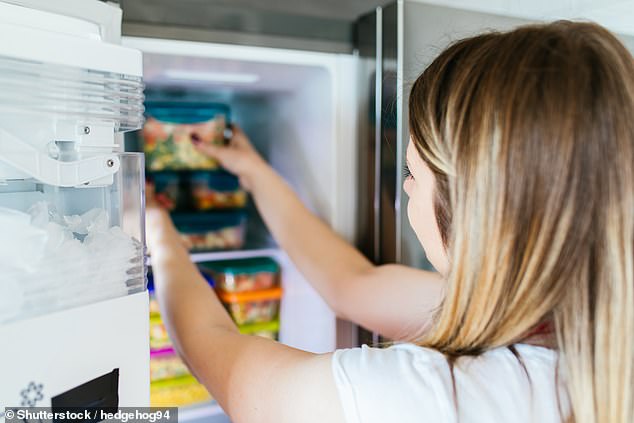
The combination of high temperatures and improper food handling can create an ideal environment for rapid bacteria growth, which poses a serious health risk, experts said (stock image)
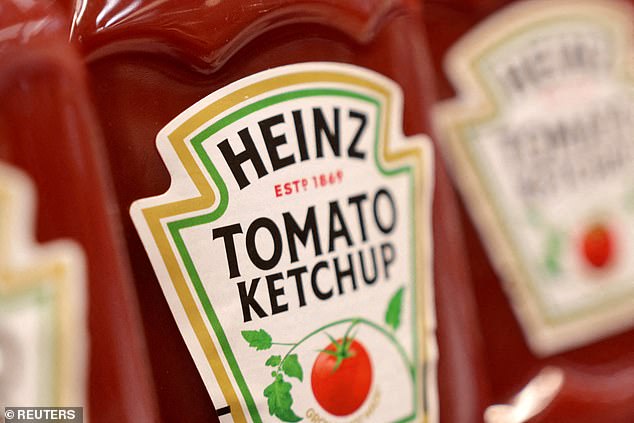
Ketchup, which should regularly be kept at room temperature, should be moved to the fridge during a heatwave – along with other condiments

Earlier today, forecasters announced that Britain will enjoy temperatures of up to 32°C this week as some places will be hotter than parts of southern Europe
Peanut butter – a breakfast staple that many keep in their kitchen cupboard – should be put in the fridge as it can go rancid faster in the heat, experts said.
Chocolate, which can melt and develop a while ‘bloom’ once cooled again, is also better off stored at a colder temperature.
Although storing bread in the fridge can make it go stale faster, it may be better than it going mouldy in the cupboard, Ms Kiss explained.
Condiments – including ketchup, mustard and jam – ‘usually do okay’ in the cupboard but last longer in the fridge during warm weather.
Certain fruits, such as berries, also spoil faster at higher temperatures and should be placed in the fridge.
Stone fruits like peaches and nectarines can also ripen too quickly in the heat.
Open sauces and spreads should be moved to the fridge, and even unopened sauces may benefit from a cooler temperature, Ms Kiss said.
Finally cakes and pastries with cream or icing – which are much more prone to spoilage – should also be stored in the fridge.
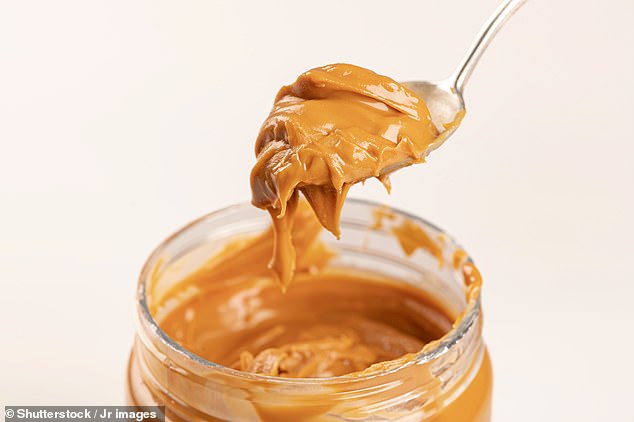
Peanut butter – a breakfast staple that many keep in their kitchen cupboard – should be put in the fridge as it can go rancid faster in the heat, experts said
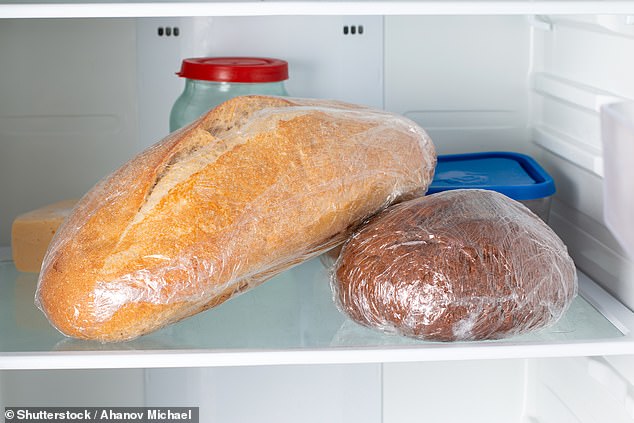
Although storing bread in the fridge (as pictured here) can make it go stale faster, it may be better than it going mouldy in the cupboard, Ms Kiss said
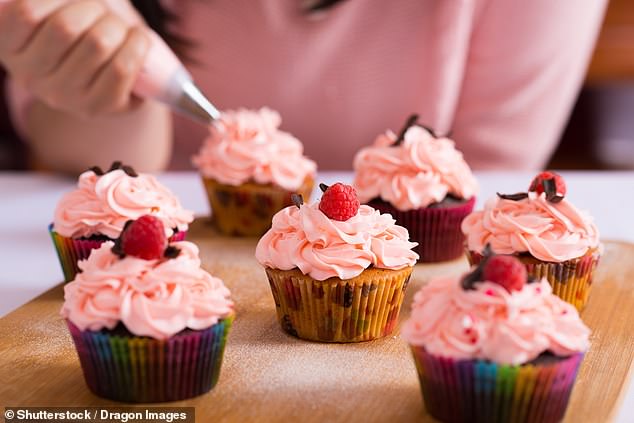
Cakes and pastries with cream or icing – which are much more prone to spoilage – should also be stored in the fridge
Other food safety tips during higher temperatures include using insulated bags or cool boxes when shopping for chilled or frozen items, and avoiding leaving groceries in a hot car for long periods.
Appliance thermometers should be used to ensure fridges and freezers are at the correct temperature – 5°C and -18°C respectively.
‘Don’t leave perishable foods at room temperature for more than two hours – or just one hour if the temperature exceeds 32°C,’ Ms Kiss added.
‘Be cautious with outdoor eating. Whether it’s a BBQ or picnic, ensure meats are cooked to the correct temperature and not left out too long in the sun.’
Keeping raw and cooked foods separate – as well as using different utensils and boards for preparation – is also important.
Earlier today, forecasters announced that Britain will enjoy temperatures of up to 32°C this week as some places will be hotter than parts of southern Europe.
An official heatwave is recorded when areas reach a certain temperature for three days in a row, with thresholds varying from 25°C (77F) to 28°C (82F) in different parts.
In London – which has a 28°C threshold – the mercury will hit 27°C (81F) today and tomorrow, 29°C (84F) on Thursday, 31°C (88F) on Friday and 32°C (90F) on Saturday.
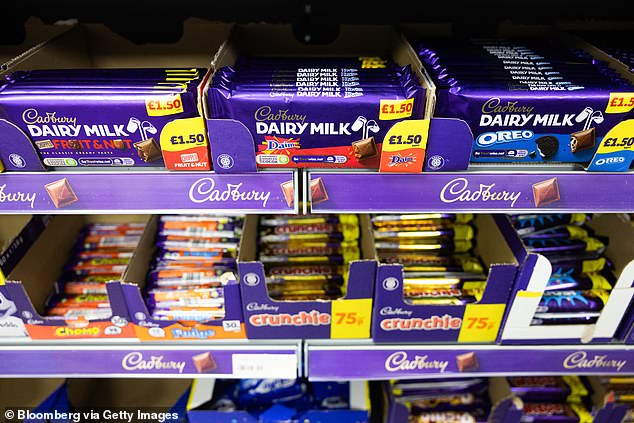
Bars of chocolate, which some may prefer to store at room temperature, should be moved to cooler temperatures to stop it spoiling
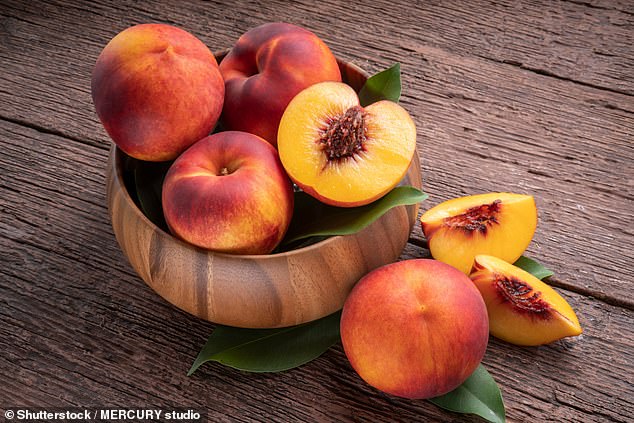
While peaches are regularly kept in a fruit bowl, they can ripen too quickly in the heat and should be moved to the fridge
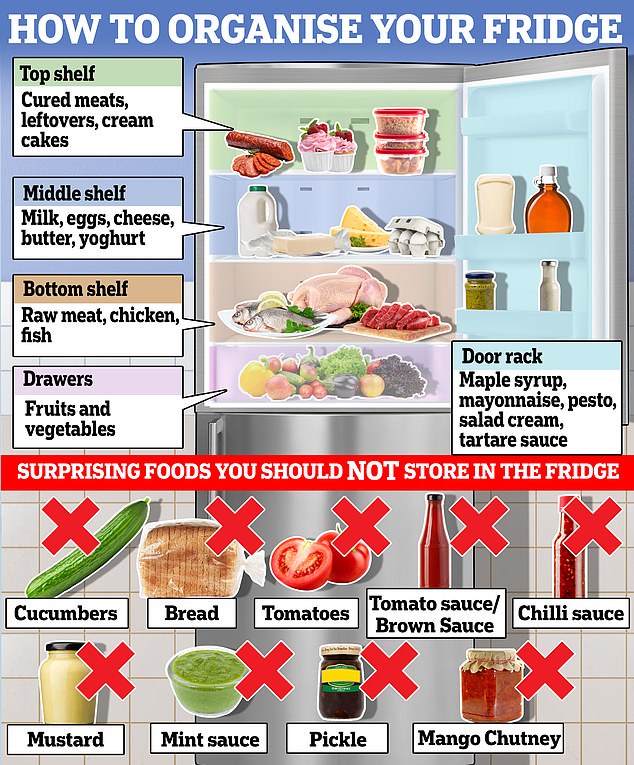
Experts from Which? previously revealed the correct spot for every single item in your fridge (not during a heatwave) including raw meat, leftovers, and condiments
The heat will also spread north towards the end of this week, with Manchester and Newcastle enjoying temperatures into the late 20°Cs (low 80Fs) by the weekend.
Meanwhile the UK Health Security Agency has issued a heat-health alert for all of England apart from the North, running from 12pm tomorrow until 6pm on Sunday.
The heatwave means some parts of the country will surpass temperatures in holiday hotspots such as Lisbon in Portugal and Barcelona in Spain, which are predicted to reach 29°C (84F) on Saturday, and Nice, France, where it will be 30°C (86F).
Forecasters have warned some rain is still possible in parts by the end of the week, with localised, heavy showers forecast depending on how humid it gets.


![Trump to Iran: 'Unconditional Surrender'; Putin to Iran: [Crickets] – HotAir](https://www.americanpolibeat.com/wp-content/uploads/2025/06/Trump-to-Iran-Unconditional-Surrender-Putin-to-Iran-Crickets-–-650x375.jpg)









